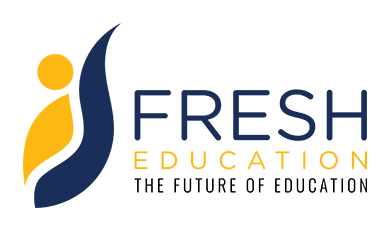International school in Thailand turns S’pore CEO into multi-millionaire amid spike in Chinese students
- August 22, 2023
- International School
SINGAPORE – The growing number of wealthy Chinese leaving their homeland has been a boon for Thailand’s only exchange-listed school operator and turned its chief executive into a multi-millionaire.
Demand from Chinese students to attend SISB, originally called the Singapore International School of Bangkok, has soared, with the number enrolled more than doubling in March compared with a year earlier.
That helped the school’s stock soar 216 per cent over the past 12 months, giving it a market value of 32.66 billion baht (S$1.26 billion) as at Wednesday.
This puts SISB among 2023’s top gainers among education service stocks globally with a market value of at least US$500 million (S$676.6 million), according to data compiled by Bloomberg News.
The company’s chief executive Kelvin Koh has a stake of about 32 per cent and the stock price surge has boosted its value to around US$300 million, Bloomberg’s calculation shows.
Mr Koh said Thailand has become a popular destination among Chinese parents because of its geographical proximity to their home, as well as lower cost of living compared with other places like Singapore.
“What we’ve seen is that people are unhappy and just leave the system,” Mr Koh said about some students from China in a recent video interview from Bangkok. “We have a Singapore brand and our leaders here have the Asian mindset. I think the culture itself is very close with the Chinese. That’s why we’re one of the biggest beneficiaries from these people coming into Thailand.”
SISB, which provides the Singapore curriculum specialising in mathematics and science, has seen the number of students at its four campuses increase about 25 per cent to 3,284 in March from a year earlier, according to the company’s financial statement.
Of the total, 715 are foreign students, with Chinese accounting for 68 per cent.
The rise in enrollments from Chinese students comes amid an exodus of wealthy people from the nation.
China lost the largest number of millionaires in the world in 2022, with 10,800 individuals migrating from the country, according to New World Wealth, a global data intelligence partner of investment migration consultant Henley & Partners. Another 13,500 are expected to leave in 2023.
Chinese parents in search of an international education for their children look overseas because of the country’s restrictions on the Western school system, analyst Jitra Amornthum, from FSS International Investment Advisory Securities in Bangkok, wrote in a research report on SISB in June.
SISB posted a profit of 159 million baht in the first quarter, more than doubling from the same period a year earlier. It will open two new campuses in August, which will raise the total number to six.
Mr Apichat Lertsakornsiri, an analyst at SBI Thai Online Securities, forecasts further strong earnings growth due to the significant jump in students, especially from China.
“There is a high potential that the company will exceed its target of total 3,700 students for 2023,” he said.
SISB’s revenue is mainly generated from tuition fees that, depending on the age of the child and the campus, range from about US$12,400 to around US$20,800.
In comparison, the median annual school fees at an international school in 2022 was US$21,386 in Singapore, US$43,100 in New York and US$21,758 in London, according to the International Schools Database.
Running the school
Mr Koh was sent to Thailand in 1992 when he was working for a Singapore trading company.
Four years later, the Singapore national with a mechanical engineering study background set up his own business in Bangkok dealing with cables and connectors related to the telecommunication industry.
In 2001, a group of parents started a new school, now SISB, to offer an alternative to American and British curriculums used by most international schools in Thailand.
Mr Koh got involved by investing some US$50,000 in the school, and his two children were among its first batch of students.
In 2007, he was asked to run the school as some parents who owned the shares wanted to exit.
“I actually had no interest at all and was not in the education field. But then I was asked ‘if you don’t take up this, who’s going to run the Singapore brand?’” Mr Koh said. “It caught me.”
In return, he asked for a veto right and more control than other shareholders to make decisions.
Ms Wilawan Kaewkanokvijit, another co-founder and director of the school, has a 25 per cent stake worth about US$236 million.
Mr Koh recalls it was a “nightmare” to list SISB on Thailand’s stock market in 2018.
Being the country’s first private school to go public with a tax exemption gave rise to a string of controversies.
Mr Koh said it even prompted an education minister to give him a call a night before the day of the initial public offering to halt the plan.
“It was never in my picture,” Mr Koh said of the stock’s current valuation. “At the end of the day, what matters is the product – the school itself and the students.” BLOOMBERG



